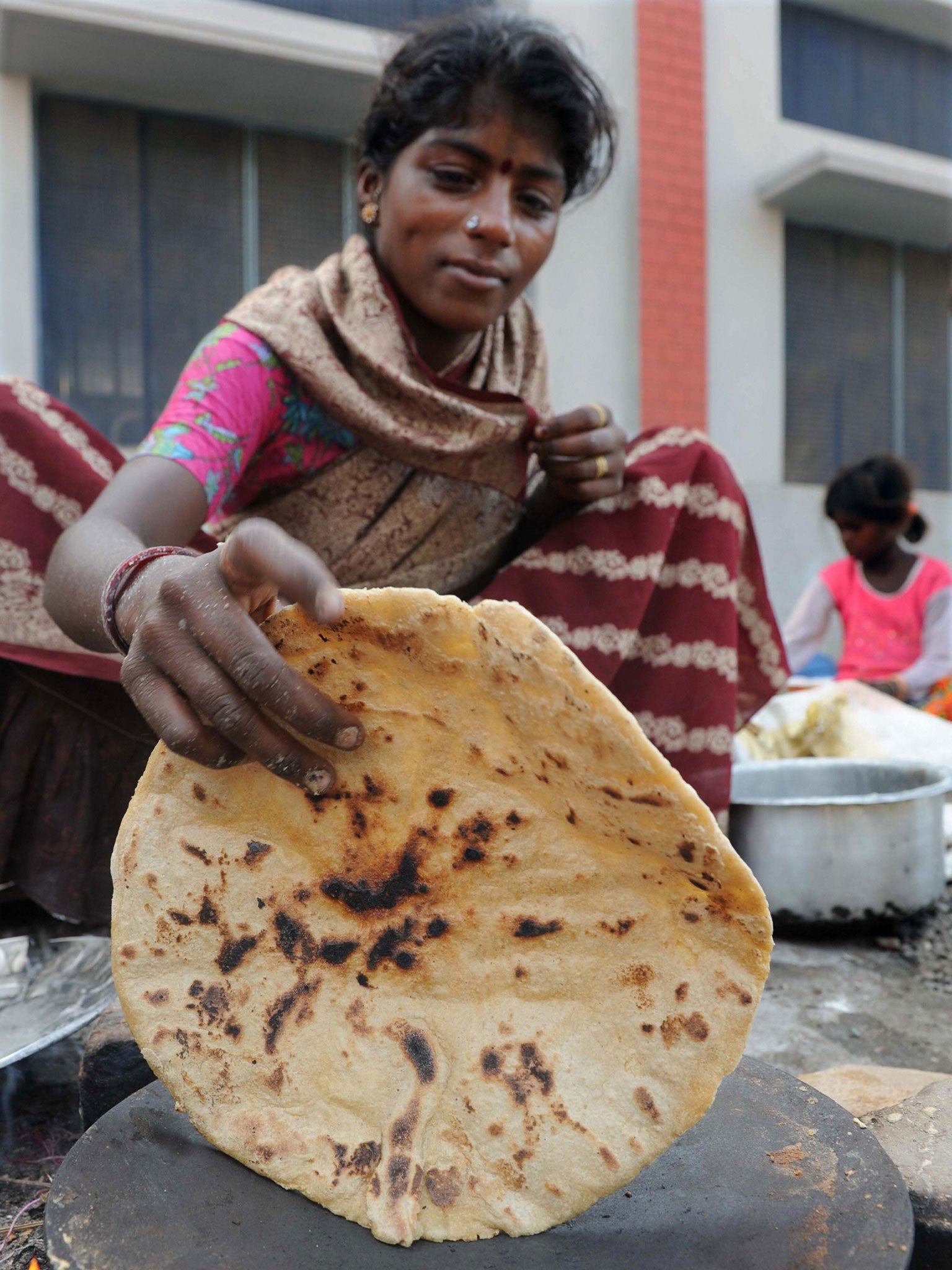The biggest welfare programme in history: Indian government gives 800 million citizens a 'legal right' to cheap food in new bill
£13bn scheme immediately condemned by business community who claim the country cannot afford it

The Indian government has passed what has been described as the biggest welfare programme in history - a scheme to provide cheap food to more than 800m people. The project has immediately drawn condemnation from industrialists and critics who say country's fragile economy cannot afford it.
In a move intended to help the hundreds of millions of Indians whose lives are scarred by malnutrition and hunger, the Congress party-led government has passed a £13bn scheme to provide heavily subsidised wheat, rice and cereals to the very poor. Perhaps more importantly, the bill, which was passed by the upper house of parliament late on Monday evening, guarantees citizens a legal right to food.
Though the Indian economy has grown in the last 20 years to the point where it is now the third-largest in Asia, up to two-thirds of the population live in poverty. Unicef says that around half of all children in India suffer from malnutrition, something the country's prime minister, Manmohan Singh has termed a “national shame”.
“The question is not whether we can do it or not. We have to do it,” the head of the Congress party, Sonia Gandhi, said as the bill was being discussed.
The government's food minister, Kuruppasserry Varkey Thomas, said the bill was the first step toward improving food distribution in a country where poor transportation and lack of refrigeration mean an estimated third of grains and vegetables rot before they reach the market.
The Associated Press said under the scheme's regulations, those who qualify will be able to buy five kg of rice a month at just three rupees (about three pennies) per kg. One kg of wheat will cost two rupees while cereals will be made available for one rupee.
Even as the bill was being debated, a number of voices, including many senior figures from business, came out against the measure, saying that with India's growth slowing to around five per cent and the rupee falling to an historic low, the country could not afford it.
Kiran Mazumdar-Shaw, who heads the Bangalore-based biotechnology company Biocon, said: “It is no surprise that the food security bill went sailing through. The question is will it sink us financially?”
Many have said the scheme is designed to win the Congress votes in an upcoming election, due to be held before next May. Aware of the potential support the bill could secure for the government, the main opposition party, the Bharatiya Janata Party, has criticised it by saying it does not go far enough.
Prakash Javadekar, a party spokesman and member of parliament, told The Independent, the scheme underscored the inability of the Congress governments down the years to address poverty
“After 66 years, we still have people living in such poverty. This is why we are having to talk about food security,” he said. “This is testimony to the failings of Congress.”
The Congress party failed to respond to to repeated queries. However, supporters of the bill say it is of historic importance. Mridula Mukherjee, professor of modern history at Jawaharlal Nehru University in Delhi, said the scheme was not simply about giving out cheap food.
“It's different from a scheme or a plan. This is a legal entitlement,” she said. “It's a legal right.”
India has offered free midday school meals since the 1960s in an effort to persuade poorer parents to send their children to school. Though there have been repeated problems with it - this summer at least 20 children died in the state of Bihar after they ate contaminated food - the scheme now reaches 120m children.
The country gives a similar promise of a hot, cooked meal to pregnant women and new mothers. The new bill will extend that to include children between six and fourteen.
Join our commenting forum
Join thought-provoking conversations, follow other Independent readers and see their replies
Comments
Bookmark popover
Removed from bookmarks